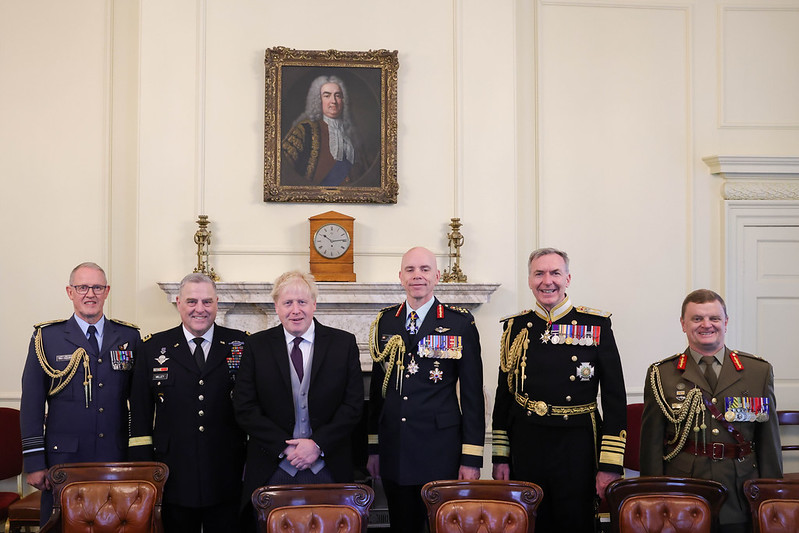Priti Patel’s Sweeping New Threat to Free Expression in the U.K.
Journalists and staff of civil society groups in the UK could be sentenced to life imprisonment for offences committed under the government’s proposed new National Security Bill.

All Global Research articles can be read in 51 languages by activating the “Translate Website” drop down menu on the top banner of our home page (Desktop version).
To receive Global Research’s Daily Newsletter (selected articles), click here.
Visit and follow us on Instagram, Twitter and Facebook. Feel free to repost and share widely Global Research articles.
***
Journalists who receive some funding from foreign governments are at risk of committing offences under a bill that carries a maximum sentence of life imprisonment. The risk also applies to individuals working for civil society organisations such as human rights groups.
It would be an offence to disclose leaked information that would prejudice the “safety or interests of” the UK. What constituted such prejudice would be entirely a matter for ministers to decide and there would be no defence to argue that the publication was in the public interest.
The sweeping new threat to freedom of expression is contained in the National Security Bill which MPs are due to vote on for the first time today. The Bill is being championed by home secretary Priti Patel.
Although the government has claimed the measure is designed to prevent new types of spying, the bill is much broader, wider even than the much criticised section 1 of the 1911 Official Secrets Act it would replace.
The 1911 Act refers to the obtaining or communication of information “calculated to be or might be or is intended to be directly or indirectly useful to an enemy” (emphasis added).
Also under the bill, ministers and spies would be given immunity from collusion in serious crimes overseas.

Military chiefs of the Five Eyes countries (US, UK, New Zealand, Australia and Canada) met Johnson last week. (Photo: Andrew Parsons / No 10)
Life imprisonment
The Freedom of Information (FoI) Campaign and Article 19, the global campaign for free expression, describe the bill as a major extension of the scope of offences in the 1911 Act.
They say: “A civil society organisation engaged in legitimate activities which has some funding for work on environmental, human rights, press freedom, asylum, aid or other issues from a friendly government could commit an offence under the bill.”
The prosecution would need to show only that such organisations had made use of leaked information “which they knew or should have known was restricted to avoid prejudicing the UK’s safety or interests and that its use did prejudice the UK’s safety or interests.”
The organisations add: “The decision on what constituted the UK’s safety or interests would be the government’s and could not be challenged in court. If the government decided that the UK’s energy situation required an immediate expansion of fracking or the building of coal fired or nuclear power plants, the use of leaked information which could undermine that policy could be a criminal offence under the bill.
“The prosecution would only have to show that the information prejudiced the attainment of the government’s policy in the UK’s interests and that the person who used the information received funding from a foreign government.”
On conviction, that person could face life imprisonment.
Overseas funding
The FoI Campaign and Article 19 point out that the same would be true if an organisation with overseas government funding to confront the problems of asylum seekers used leaked information to oppose the UK government’s asylum policies.
The government could assert that these were necessary in the UK’s interests.
A journalist working for another government’s state broadcaster – including that of a friendly state – who reports on a leak of protected information which is held to be prejudicial to the UK’s interests, would also commit an offence under the bill if they knew or ought to have known that the broadcast would prejudice the UK’s safety or interests.
The fact that the journalist was paid by the funds of a foreign government department or agency and that the broadcasting organisation itself was financed by such funds would satisfy the foreign power condition.
They would also face a maximum sentence of life imprisonment.
Yet a journalist working for a UK news organisation responsible for an identical report based on the same leak could not commit this offence because the foreign power condition would not apply.
*
Note to readers: Please click the share buttons above or below. Follow us on Instagram, Twitter and Facebook. Feel free to repost and share widely Global Research articles.
Featured image: Priti Patel leaves St Paul’s Cathedral with other ministers after the Platinum Jubilee service on Friday. (Photo: Andrew Parsons / No 10)

